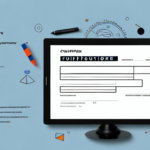How to Get Customer Reviews and Increase Your Business's Reputation
If you're running a business, no matter the industry, managing your online reputation is key. One of the most effective tactics in doing so is obtaining customer reviews. Reviews can significantly impact your business, but how do you encourage customers to leave them? In this article, we'll explore why customer reviews are crucial, how to acquire them, and the best practices for responding to and managing those reviews.
Importance of Customer Reviews
Influencing Customer Decisions
Customer reviews play a vital role in influencing the decision-making process of potential customers. According to a recent study by BrightLocal, 93% of consumers read online reviews before making a purchase decision. Positive reviews can help your business stand out from competitors and build trust with potential customers.
Impact on SEO
Customer reviews also enhance your search engine ranking. Search engines like Google consider the number and quality of reviews when determining the relevance and credibility of your business. A higher number of positive reviews can boost your visibility in search results, making it easier for potential customers to find you.
Building Customer Loyalty
Reviews provide a platform for valuable feedback, helping you identify areas for improvement and understand what your customers appreciate about your products or services. Engaging with customers through reviews can foster loyalty, as customers feel their opinions are valued.
Encouraging Customers to Leave Reviews
Making It Easy for Customers
Customers are more likely to leave reviews if the process is convenient. Here are some effective strategies:
- Ask for reviews in person or via email after a purchase or interaction with your business.
- Offer incentives, such as discounts on future purchases or entries into prize draws.
- Provide direct links to your business's review pages to simplify the process.
Best Practices for Soliciting Reviews
Ensure you follow guidelines established by review platforms. Avoid incentivizing only positive reviews and never attempt to manipulate the review process by reviewing your own business.
Responding to Customer Reviews
The Benefits of Responding to Reviews
Responding to customer reviews demonstrates that you value and appreciate their feedback. It also provides an opportunity to address any concerns raised, improving customer trust and potentially enhancing your search engine ranking. According to Search Engine Journal, businesses that actively respond to reviews see higher customer satisfaction and loyalty.
Handling Negative Reviews
- Respond promptly and professionally.
- Apologize and acknowledge the customer's concerns.
- Offer solutions or ways to rectify the situation.
- Consider taking the conversation offline if necessary.
Always maintain a professional tone and avoid confrontational language when addressing negative reviews.
Utilizing Reviews as Marketing Tools
Showcasing Positive Reviews
Feature positive reviews on your website and social media channels. Incorporate customer quotes into marketing materials, such as flyers and brochures, to highlight the positive experiences of your customers.
Leveraging User-Generated Content
User-generated content, like customer photos and videos, can increase credibility and trust in your brand. Encourage customers to share their experiences on social media, providing authentic content for your marketing efforts.
Managing Your Online Reputation
Monitoring Your Reputation
Regularly check review sites and social media channels for mentions of your business. Tools like Hootsuite and Sprout Social can help streamline this process. Promptly responding to any negative reviews or comments can mitigate potential damage to your reputation.
Building a Positive Online Presence
Create and regularly update your business's website and social media profiles. Actively engage with customers and followers by providing valuable content and excellent customer service to establish a strong online reputation.
Measuring and Improving Reputation Management
Key Performance Indicators (KPIs)
- Number of reviews received and response rate.
- Average star rating on review platforms.
- Improvement in search engine ranking.
Use data to analyze the effectiveness of your reputation management efforts, helping you refine your strategy and improve your business's overall reputation.
Common Mistakes to Avoid
- Ignoring or deleting negative reviews.
- Responding defensively or confrontationally to negative reviews.
- Incentivizing only positive reviews.
- Not regularly monitoring review sites or social media channels.
Avoiding these mistakes ensures effective management of your business's online reputation.
Conclusion
Customer reviews are a critical component of managing your business's online reputation. Encouraging customers to leave reviews, responding to them, and using them as a marketing tool can improve your business's credibility and trustworthiness. Additionally, regularly monitoring and adjusting your online reputation management strategy can help your business stay ahead of competitors and attract new customers.




















